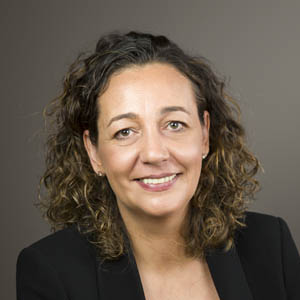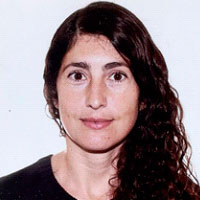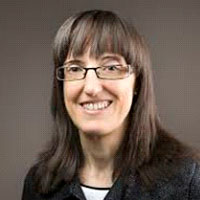Master’s Degree in Educational Governance

Program with a professional and research orientation
The Master's Degree in Educational Governance responds to the need to train professionals and researchers in the area of Governance of educational entities, providing them with advanced competences, abilities and attitudes to implement and develop governance in all areas of an educational organization.
This Master's degree seeks to incorporate the skills required for future managers of public policies in the educational field, directors and managers of educational institutions and teachers in general, in the knowledge derived from the new spaces of relationship and management.
Graduates of this degree will be able to lead the transformation of educational centers, considering, in addition to the inclusion of information and communication technologies in the classroom, and the adaptation of teaching methodologies, all aspects and processes of an educational organization: structural, organizational, management, planning, etc.
Read +One of the main distinguishing factors of this degree is the double orientation it has and, therefore, the two career profiles of the master's degree: professional and researcher.
The proposal presented in the master's degree maintains blocks of theoretical foundation in educational governance and, in addition, adds three elective subjects that the student will have to take depending on the profile they wish to acquire.
On the one hand, two four-credit subjects on methodology and analysis in the area are offered, in the case of the researcher profile, and, on the other, an eight-credit internship subject, in the case of the professional profile.
In addition, the combination of topics such as information and communication technologies, new methodologies in the teaching-learning process, as well as the organization and internal management of educational centers and organizations, gives it a unique integrating character that brings together the main characteristics necessary to lead these institutions.
Read LessStudent profile: Those interested in studying and obtaining the Master's Degree in Educational Governance from the Antonio de Nebrija University must meet the requirements set forth in the current legislation; the admission profile is that of a university graduate or equivalent (bachelor's or associate’s degrees) in Teaching, Pedagogy, Psychology (with specialization in education) or Psychopedagogy. Likewise, given the transversal nature of the program, students who have completed the Master's Degree in Teacher Training for Compulsory Secondary Education and Baccalaureate, Vocational Training and Language Teaching, or who have the Teaching Aptitude Certificate (CAP) will be able to access the Master's Degree.
Official Degree:Master’s Degree in Educational Governance
Center responsible:School of Language and Education
Branch of knowledge: Social and Legal Sciences
Openings available: 100
Total Credits60 ECTS credits.
Minimum of 12 ECTS credits and maximum of 60 ECTS credits per enrollment and academic period.
Academic year it was introduced: 2022
Duration: 1 year. From october to june
Type of Education: Online
Academic Regulations: General student’s regulations. Credit transfer and recognition. Regulation of student participation. Common procedures for carrying out the Final Research Project
University Services: [+info]
Internal Quality Assurance System System managers Incidents, Suggestions and Complaints Job placement report and assessment of training received
Why study the Master’s Degree in Educational Governance
Curriculum
The student must take 60 credits
First Semester 28 ECTS
From October to January, both included- 4 ECTS | Governance in Education
- 4 ECTS | Education Management
- 4 ECTS | Innovation, Governance and Technology
- 4 ECTS | Educational planning
- 4 ECTS | Instrumental language applied to Governance
- 4 ECTS | Regulatory framework and comparative analysis of educational governance models at the international level
- 4 ECTS | Innovation in educational governance
Second Semester 32 ECTS
From January to June, both included- 4 ECTS | Educational quality control system
- 4 ECTS | Coexistence, mediation and conflict resolution in the educational center
- 4 ECTS | Knowledge management and governance in education
- 4 ECTS | Advanced research methodology in the implementation of governance in educational centers
- 4 ECTS | Advanced data analysis in Educational Governance
- 8 ECTS | External internships
- 12 ECTS | Final Research Project FRP
Information of the Subjects
Professors
| Profesores Professors | Porcentaje de Doctores Percentage of PhD holders |
| 35 | 80% |
 Nuria Camuñas Sánchez-Paulete
Vicedecana de la Facultad de Lenguas y Educación
Nuria Camuñas Sánchez-Paulete
Vicedecana de la Facultad de Lenguas y EducaciónDirectora del Departamento de Educación Vice Dean of the Faculty of Languages and Education
Director of the Department of Education Doctora en Psicología por la UCM. Máster en Intervención en la Ansiedad y el Estrés (UCM). Licenciada con grado en Psicología (UCM). Directora del Área de Educación de la Facultad de la Artes y las Letras. Es profesora de la Facultad de Lenguas y Educación en grado y postgrado. Docente de distintos cursos de formación y máster, sobre ansiedad, emociones y educación, estrés, modificación de conducta y dificultades del aprendizaje. Autora de distintas publicaciones y presentaciones en congresos relacionadas con procesos cognitivos, emoción y educación, prevención y control del estrés, etc. Miembro del grupo de investigación en Formación del Profesorado y Educación (IFPE). Otras líneas de investigación: Cognición, Emoción, Salud y Educación.
 Patricia González Collado
Directora del Máster Universitario en Gobernanza Educativa
Director of the Master’s Degree in Educational Governance
Doctora en Educación por la Universidad Autónoma de Madrid con mención Cum Laude. Graduada en Pedagogía por la Universidad de Oviedo y Máster en Calidad y mejora de la Educación por la Universidad Autónoma de Madrid. Su principal línea de investigación está centrada en la Pedagogía de la Muerte en el contexto educativo y hospitalario. Es investigadora en proyectos I+D+I como “Innovación e Inclusión de la Muerte en Educación” y “Pedagogía, Pandemia y Mejora de la Educación” (Ministerio de Ciencia e Innovación). Co-autora de los libros “La práctica de la pedagogía de la muerte: Guía Educativa y Plan Lector”. Ha presentado diversas comunicaciones y ponencias en Congresos Educativos. Actualmente, es directora del Máster en Dirección y Transformación Digital de Centros Educativos y del Máster en Gobernanza Educativa en la Universidad Antonio de Nebrija. También es docente en el Máster Universitario en Formación del Profesorado de ESO y Bachillerato, FP y Enseñanza de Idiomas (Universidad Antonio de Nebrija).
Patricia González Collado
Directora del Máster Universitario en Gobernanza Educativa
Director of the Master’s Degree in Educational Governance
Doctora en Educación por la Universidad Autónoma de Madrid con mención Cum Laude. Graduada en Pedagogía por la Universidad de Oviedo y Máster en Calidad y mejora de la Educación por la Universidad Autónoma de Madrid. Su principal línea de investigación está centrada en la Pedagogía de la Muerte en el contexto educativo y hospitalario. Es investigadora en proyectos I+D+I como “Innovación e Inclusión de la Muerte en Educación” y “Pedagogía, Pandemia y Mejora de la Educación” (Ministerio de Ciencia e Innovación). Co-autora de los libros “La práctica de la pedagogía de la muerte: Guía Educativa y Plan Lector”. Ha presentado diversas comunicaciones y ponencias en Congresos Educativos. Actualmente, es directora del Máster en Dirección y Transformación Digital de Centros Educativos y del Máster en Gobernanza Educativa en la Universidad Antonio de Nebrija. También es docente en el Máster Universitario en Formación del Profesorado de ESO y Bachillerato, FP y Enseñanza de Idiomas (Universidad Antonio de Nebrija). pgonzalezco@nebrija.es
 Camino Ruiz Rodríguez
Coordinadora del Máster Universitario en Dirección y Transformación Digital de Centros Educativos y Profesora
Coordinator of the Master's Degree in Management and Digital Transformation of Educational Centers and Professor
Titulada en Psicopedagogía por la Universidad de Valladolid, con Magisterio en Educación Especial y Magisterio en Educación Primaria por la Universidad de Burgos. Especializada en Gestión de Recursos Humanos y Gestión Empresarial por la Universidad de Alcalá de Henares y como profesora de religión católica por el instituto superior de ciencias religiosas "San Jerónimo" vinculado a la facultad de Teología del Norte de España. Profesora universitaria en el Grado de Educación Infantil, Grado de Educación Primaria, Máster en Psicopedagogía, Máster en Dirección y Gestión para la Calidad de Centros Educativos, Máster en Enseñanza del Español para Extranjeros y Máster en Educación Secundaria, en distintas universidades de ámbito nacional. Es directora de TFM y TFG y participa como miembro de tribunal de evaluación de proyectos de investigación fin de Máster y fin de Grado..
Camino Ruiz Rodríguez
Coordinadora del Máster Universitario en Dirección y Transformación Digital de Centros Educativos y Profesora
Coordinator of the Master's Degree in Management and Digital Transformation of Educational Centers and Professor
Titulada en Psicopedagogía por la Universidad de Valladolid, con Magisterio en Educación Especial y Magisterio en Educación Primaria por la Universidad de Burgos. Especializada en Gestión de Recursos Humanos y Gestión Empresarial por la Universidad de Alcalá de Henares y como profesora de religión católica por el instituto superior de ciencias religiosas "San Jerónimo" vinculado a la facultad de Teología del Norte de España. Profesora universitaria en el Grado de Educación Infantil, Grado de Educación Primaria, Máster en Psicopedagogía, Máster en Dirección y Gestión para la Calidad de Centros Educativos, Máster en Enseñanza del Español para Extranjeros y Máster en Educación Secundaria, en distintas universidades de ámbito nacional. Es directora de TFM y TFG y participa como miembro de tribunal de evaluación de proyectos de investigación fin de Máster y fin de Grado.. cruizro@nebrija.es
 Alicia Alvarado Escudero
Profesora
Professor
Doctora en Historia de América por la Universidad Pablo de Olavide, estudios de postgrado en la Universidad Complutense de Madrid con el Diploma de Estudios Avanzados y Curso de Adaptación Pedagógica. Imparte docencia en la Universidad Camilo José Cela, Antonio de Nebrija y Unir. Ha impartido docencia en cursos de formación de la Comunidad de Madrid sobre herramientas digitales aplicadas a la educación, gamificación y TICs aplicadas a la innovación educativa, y diferentes asignaturas pertenecientes al área de humanidades en el IES Iturralde y Colegio Gredos San Diego. Ha llevado a cabo una investigación científica internacional en la Pontificia Universidad Católica del Perú. Participa y ha participado en numerosos congresos nacionales e internacionales: como ponente y miembro del comité Científico y Organizador. Ha publicado artículos científicos tanto en revistas nacionales como internacionales.
Alicia Alvarado Escudero
Profesora
Professor
Doctora en Historia de América por la Universidad Pablo de Olavide, estudios de postgrado en la Universidad Complutense de Madrid con el Diploma de Estudios Avanzados y Curso de Adaptación Pedagógica. Imparte docencia en la Universidad Camilo José Cela, Antonio de Nebrija y Unir. Ha impartido docencia en cursos de formación de la Comunidad de Madrid sobre herramientas digitales aplicadas a la educación, gamificación y TICs aplicadas a la innovación educativa, y diferentes asignaturas pertenecientes al área de humanidades en el IES Iturralde y Colegio Gredos San Diego. Ha llevado a cabo una investigación científica internacional en la Pontificia Universidad Católica del Perú. Participa y ha participado en numerosos congresos nacionales e internacionales: como ponente y miembro del comité Científico y Organizador. Ha publicado artículos científicos tanto en revistas nacionales como internacionales.aalvarado@nebrija.es
 María Raquel Armas Zavaleta
Profesora
Professor
Doctora en Ciencias de la Educación (2019) por la Universidad Complutense de Madrid (UCM), especialista en Especialidad Métodos e investigación y creación de proyectos educativos y Máster Universitario en Estudios Avanzados en Pedagogía por la Universidad Complutense de Madrid (2013). Becada por el MECD. Inició su trayectoria docente e investigadora en el Departamento de Didáctica de las matemáticas de la Facultad de Educación de la UCM, en el ámbito de la didáctica. Es revisora en la “evaluación de pares ciegos” en la revista ASOCREA y colaboradora externa del programa REFUERZA COVID de la CAM por la empresa Innovenza Outsourcing S.L. Ha participado como profesora invitada para impartir talleres útiles y prácticos relacionados con la creación de encuestas, proyectos educativos y aplicación de las TICs en la educación. En los 5 últimos años ha formado parte diferentes equipos de docentes investigadores. Colaboradora en diferentes universidades UNED, UCM, UAM. Sus principales líneas de investigación han sido la Pedagogía y Psicopedagogía, Didáctica de las matemáticas e investigación educativa, Proyectos educativos y TIC aplicadas a la educación.
María Raquel Armas Zavaleta
Profesora
Professor
Doctora en Ciencias de la Educación (2019) por la Universidad Complutense de Madrid (UCM), especialista en Especialidad Métodos e investigación y creación de proyectos educativos y Máster Universitario en Estudios Avanzados en Pedagogía por la Universidad Complutense de Madrid (2013). Becada por el MECD. Inició su trayectoria docente e investigadora en el Departamento de Didáctica de las matemáticas de la Facultad de Educación de la UCM, en el ámbito de la didáctica. Es revisora en la “evaluación de pares ciegos” en la revista ASOCREA y colaboradora externa del programa REFUERZA COVID de la CAM por la empresa Innovenza Outsourcing S.L. Ha participado como profesora invitada para impartir talleres útiles y prácticos relacionados con la creación de encuestas, proyectos educativos y aplicación de las TICs en la educación. En los 5 últimos años ha formado parte diferentes equipos de docentes investigadores. Colaboradora en diferentes universidades UNED, UCM, UAM. Sus principales líneas de investigación han sido la Pedagogía y Psicopedagogía, Didáctica de las matemáticas e investigación educativa, Proyectos educativos y TIC aplicadas a la educación.marmasz@nebrija.es
 Caterine Bedoya Mejía
Profesora
Professor
Licenciada en Educación Especial y Especialista en Pedagogía para la Virtualidad, títulos obtenidos en Colombia; Máster en Intervención Social y Comunitaria, obtenido en España y Magíster en Educación obtenido en México. Durante más de 15 años, ha laborado con universidades desde diferentes ámbitos, como profesora universitaria en modalidades presencial, virtual y a distancia, también como directora de trabajos de tesis y Jurado, estos cargos los ha realizado para formación profesional, postgrados y Maestría en España y otras universidades internacionales como Colombia y Panamá. Los cursos que ha acompañado como profesora universitaria han sido en Facultades de ciencias sociales y humanidades, en programas como Comunicación Social, Trabajo Social, Psicología, Educación Infantil y Educación Especial. Adicional he sido Formadora de formadores en diseño curricular, adaptaciones curriculares, manejo de plataformas educativas LMS y formación en TIC. Ha participado en proyectos de Investigación, siendo el más representativo con la comunidad Europea, liderado por la Universidad de Alcalá. Finalmente, también ha liderado durante 4 años equipos de trabajo en dos Universidades diferentes, como secretaria académica de Facultad y Directora Nacional de Educación a Distancia y Virtual Medios y Mediaciones.
Caterine Bedoya Mejía
Profesora
Professor
Licenciada en Educación Especial y Especialista en Pedagogía para la Virtualidad, títulos obtenidos en Colombia; Máster en Intervención Social y Comunitaria, obtenido en España y Magíster en Educación obtenido en México. Durante más de 15 años, ha laborado con universidades desde diferentes ámbitos, como profesora universitaria en modalidades presencial, virtual y a distancia, también como directora de trabajos de tesis y Jurado, estos cargos los ha realizado para formación profesional, postgrados y Maestría en España y otras universidades internacionales como Colombia y Panamá. Los cursos que ha acompañado como profesora universitaria han sido en Facultades de ciencias sociales y humanidades, en programas como Comunicación Social, Trabajo Social, Psicología, Educación Infantil y Educación Especial. Adicional he sido Formadora de formadores en diseño curricular, adaptaciones curriculares, manejo de plataformas educativas LMS y formación en TIC. Ha participado en proyectos de Investigación, siendo el más representativo con la comunidad Europea, liderado por la Universidad de Alcalá. Finalmente, también ha liderado durante 4 años equipos de trabajo en dos Universidades diferentes, como secretaria académica de Facultad y Directora Nacional de Educación a Distancia y Virtual Medios y Mediaciones.cbedoya@nebrija.es
 Oscar Becerra Rospigliosi
Profesor
Professor
Máster en Dirección y Gestión de Centros Educativos (UEM). Grado de Ingeniería Informática y de Sistemas (USIL – Perú). Especializaciones en Gestión de Proyectos (USIL – Perú), Innovación Pedagógica (EUCIM), Innovación Empresarial (UTP – Perú) y Dirección de la Innovación, Agilidad y Transformación Digital (PUCP – Perú).
Oscar Becerra Rospigliosi
Profesor
Professor
Máster en Dirección y Gestión de Centros Educativos (UEM). Grado de Ingeniería Informática y de Sistemas (USIL – Perú). Especializaciones en Gestión de Proyectos (USIL – Perú), Innovación Pedagógica (EUCIM), Innovación Empresarial (UTP – Perú) y Dirección de la Innovación, Agilidad y Transformación Digital (PUCP – Perú).Actual Líder de Digitalización y Familias en el colegio Liceo Sorolla de Pozuelo de Alarcón, Madrid. Directivo y gestor educativo en educación escolar y superior en Perú.
Experiencia docente en educación escolar y superior, en formación relacionada a emprendimiento, gestión, innovación y planificación estratégica.
 José Manuel Blanco Gómez
Profesor
Professor
Doctor por la Universidad Rey Juan Carlos (2017) y Master en PRL, Postgrado en RR. HH por la Universidad de Barcelona y EAE (2012); Postgrado en Planificación de Servicios Sociales y Postgrado en Animación Sociocultural, ambos por la Universidad da Coruña (2003). Postgrado en Integración Sociolaboral de Personas Discapacitadas por la Universidad de Córdoba (1999). También tiene la licenciatura de Psicopedagogía por la Universidad de Jaén (1995) y la diplomatura en Profesorado de EGB por la Universidad de Córdoba (1993). Su docencia se centra en la ergonomía, psicosociología y medicina del trabajo. También en la metodología de la integración social; en la animación sociocultural y en la orientación laboral. Tanto en el ámbito universitario, como de la formación profesional de grado superior y la formación profesional ocupacional. Sus intereses de investigación cubren desde los factores psicosociales relacionados con la PRL en personas con discapacidad; la recuperación y reinserción sociolaboral de personas con daño cerebral sobrevenido. Así como la influencia de los apoyos de la familia, compañeros/as, supervisores/as y organización en la mediación y moderación entre los factores psicosociales y la satisfacción laboral y vital.
José Manuel Blanco Gómez
Profesor
Professor
Doctor por la Universidad Rey Juan Carlos (2017) y Master en PRL, Postgrado en RR. HH por la Universidad de Barcelona y EAE (2012); Postgrado en Planificación de Servicios Sociales y Postgrado en Animación Sociocultural, ambos por la Universidad da Coruña (2003). Postgrado en Integración Sociolaboral de Personas Discapacitadas por la Universidad de Córdoba (1999). También tiene la licenciatura de Psicopedagogía por la Universidad de Jaén (1995) y la diplomatura en Profesorado de EGB por la Universidad de Córdoba (1993). Su docencia se centra en la ergonomía, psicosociología y medicina del trabajo. También en la metodología de la integración social; en la animación sociocultural y en la orientación laboral. Tanto en el ámbito universitario, como de la formación profesional de grado superior y la formación profesional ocupacional. Sus intereses de investigación cubren desde los factores psicosociales relacionados con la PRL en personas con discapacidad; la recuperación y reinserción sociolaboral de personas con daño cerebral sobrevenido. Así como la influencia de los apoyos de la familia, compañeros/as, supervisores/as y organización en la mediación y moderación entre los factores psicosociales y la satisfacción laboral y vital.jblanco@nebrija.es
 Lidia Cabello González
Profesora
Professor
Licenciada en Pedagogía. Suficiencia Investigadora en Teoría de la Educación y Pedagogía Social. Técnico Superior en Prevención de Riesgos Laborales. Máster en Recursos Humanos. Profesora Colaborada en la Facultad de Pedagogía de la Universidad de Sevilla durante los años 1997 hasta el 2001. Directora de TFM en materia de PRL en la Facultad de Ingeniería de la UNIR. Experiencia como Técnico de Orientación Laboral y Técnico de Formación en varias empresas. Autora del libro "La Formación Continua en la Empresa". Participación en diversas Investigaciones relacionadas con el ámbito educativo. Especializada en nuevas tecnologías aplicadas a la docencia, como tutora de cursos on-line, entre otros. En lo que respecta a la actividad investigadora, ha publicado diversos artículos en revistas de divulgación y científicas.
Lidia Cabello González
Profesora
Professor
Licenciada en Pedagogía. Suficiencia Investigadora en Teoría de la Educación y Pedagogía Social. Técnico Superior en Prevención de Riesgos Laborales. Máster en Recursos Humanos. Profesora Colaborada en la Facultad de Pedagogía de la Universidad de Sevilla durante los años 1997 hasta el 2001. Directora de TFM en materia de PRL en la Facultad de Ingeniería de la UNIR. Experiencia como Técnico de Orientación Laboral y Técnico de Formación en varias empresas. Autora del libro "La Formación Continua en la Empresa". Participación en diversas Investigaciones relacionadas con el ámbito educativo. Especializada en nuevas tecnologías aplicadas a la docencia, como tutora de cursos on-line, entre otros. En lo que respecta a la actividad investigadora, ha publicado diversos artículos en revistas de divulgación y científicas. lcabello@nebrija.es
 Jose Manuel Carrasco Jiménez
Profesor
Professor
Licenciado en Humanidades, doctor en Filosofía. Master en Educación Basada en Competencias. Master universitario en formación del profesorado de Educación Secundaria y Bachillerato, Formación Profesional y enseñanza de idiomas. Personal docente en licenciatura en la Universidad del Valle de México. Director de la academia de comunicación y medios digitales en UVM. Profesor titular en bachillerato en el Centro de Estudios Londres (México) Desde octubre de 2022 docente en la Universidad Camilo José Cela.
Jose Manuel Carrasco Jiménez
Profesor
Professor
Licenciado en Humanidades, doctor en Filosofía. Master en Educación Basada en Competencias. Master universitario en formación del profesorado de Educación Secundaria y Bachillerato, Formación Profesional y enseñanza de idiomas. Personal docente en licenciatura en la Universidad del Valle de México. Director de la academia de comunicación y medios digitales en UVM. Profesor titular en bachillerato en el Centro de Estudios Londres (México) Desde octubre de 2022 docente en la Universidad Camilo José Cela. jcarrasc@nebrija.es
 Silvia Castellanos Cano
Profesora
Professor
Doctora en Psicología por la Universidad de Oviedo. Máster de Investigación en Psicología de Salud. Autora de diversos artículos sobre Personalidad Eficaz, Procesamiento Estratégico de la Información, elaboración de cuestionarios y aprendizaje multimedia. En cuanto a la trayectoria profesional ha impartido docencia en la Universidad de Psicología de Oviedo y la Universidad internacional de la Rioja. Ha participado en proyectos de investigación como “Asistencia y dirección en los procesos de gestión, planificación, investigación, y redacción de trabajos conducentes” en la Universidad de Oviedo. Autora de distintos artículos científicos, tanto a nivel nacional como internacional, centradas en los campos de la Personalidad Eficaz, el Procesamiento Estratégico de la Información y elaboración de herramientas asociadas al aprendizaje multimedia.
Silvia Castellanos Cano
Profesora
Professor
Doctora en Psicología por la Universidad de Oviedo. Máster de Investigación en Psicología de Salud. Autora de diversos artículos sobre Personalidad Eficaz, Procesamiento Estratégico de la Información, elaboración de cuestionarios y aprendizaje multimedia. En cuanto a la trayectoria profesional ha impartido docencia en la Universidad de Psicología de Oviedo y la Universidad internacional de la Rioja. Ha participado en proyectos de investigación como “Asistencia y dirección en los procesos de gestión, planificación, investigación, y redacción de trabajos conducentes” en la Universidad de Oviedo. Autora de distintos artículos científicos, tanto a nivel nacional como internacional, centradas en los campos de la Personalidad Eficaz, el Procesamiento Estratégico de la Información y elaboración de herramientas asociadas al aprendizaje multimedia. scastellanos@nebrija.es
 Marta Castillo Segura
Profesora
Professor
Actualmente, cursando los estudios de doctorado en investigación transdisciplinar en educación. Pedagoga y profesora universitaria en asignaturas relacionadas con el ámbito educativo y la intervención con personas con necesidades educativas especiales. Además, lidera un gabinete psicopedagógico. Ha publicado diversas comunicaciones e investigado sobre la aplicación de las TIC en el ámbito de la intervención educativa.
Marta Castillo Segura
Profesora
Professor
Actualmente, cursando los estudios de doctorado en investigación transdisciplinar en educación. Pedagoga y profesora universitaria en asignaturas relacionadas con el ámbito educativo y la intervención con personas con necesidades educativas especiales. Además, lidera un gabinete psicopedagógico. Ha publicado diversas comunicaciones e investigado sobre la aplicación de las TIC en el ámbito de la intervención educativa. mcastill@nebrija.es
 Helena Cereto Urdiales
Profesora
Professor
Graduada en Estudios Ingleses por la Universidad de Málaga. Máster en Estudios Lingüísticos, Literarios y Culturales por la Universidad de Sevilla. Máster en Enseñanza de Español como Lengua Extranjera por la Universidad de Málaga.
Helena Cereto Urdiales
Profesora
Professor
Graduada en Estudios Ingleses por la Universidad de Málaga. Máster en Estudios Lingüísticos, Literarios y Culturales por la Universidad de Sevilla. Máster en Enseñanza de Español como Lengua Extranjera por la Universidad de Málaga. Profesora de idiomas por cuenta propia y redactora de materiales para Universidad de Nebrija.
 Adrián Correro
Profesor
Professor
Máster en Innovación e Investigación educativa por la UNED. Coordinador Dpto. de Educación en Zoología. Docente en Dpto. de Orientación. Docente en cursos de inglés como segunda lengua. Licenciado en Psicopedagogía por la UMA. Maestro especializado en Pedagogía Terapéutica por la UMA.
Adrián Correro
Profesor
Professor
Máster en Innovación e Investigación educativa por la UNED. Coordinador Dpto. de Educación en Zoología. Docente en Dpto. de Orientación. Docente en cursos de inglés como segunda lengua. Licenciado en Psicopedagogía por la UMA. Maestro especializado en Pedagogía Terapéutica por la UMA.
 Maitane Elorriaga Rubio
Profesora
Professor
Doctora en la Psicología de la toma de decisiones por la Universidad Danesa Copenhagen Business School. Allí ha creado e impartido varias asignaturas interdisciplinares en inglés de Psicología básica y aplicada, a nivel de grado y máster. Actualmente, ejerce como docente en Universidad Nebrija. También ha impartido docencia en el máster de Educación Bilingüe de la Universidad Francisco de Vitoria, así como en la Universidad Camilo Jose Cela, en los másteres de Competencias Docentes Avanzadas y Orientación e Intervención Psicopedagógica. En cuanto a su actividad investigadora, cabe destacar que fue galardonada con el Premio Fonnesbech al Doctorado en 2017, y sus investigaciones han sido publicadas, así como presentadas en congresos internacionales.
Maitane Elorriaga Rubio
Profesora
Professor
Doctora en la Psicología de la toma de decisiones por la Universidad Danesa Copenhagen Business School. Allí ha creado e impartido varias asignaturas interdisciplinares en inglés de Psicología básica y aplicada, a nivel de grado y máster. Actualmente, ejerce como docente en Universidad Nebrija. También ha impartido docencia en el máster de Educación Bilingüe de la Universidad Francisco de Vitoria, así como en la Universidad Camilo Jose Cela, en los másteres de Competencias Docentes Avanzadas y Orientación e Intervención Psicopedagógica. En cuanto a su actividad investigadora, cabe destacar que fue galardonada con el Premio Fonnesbech al Doctorado en 2017, y sus investigaciones han sido publicadas, así como presentadas en congresos internacionales.melorriaga@nebrija.es
 Sergio Méndez de la Calle
Profesor
Professor
Doctorando en Educación (UCM). Línea de investigación: impacto de las NTIC en el rendimiento académico. Máster en Tecnología Digital aplicada a la práctica docente (UCJC). Grado en Educación Primaria + Mención Inglés (UNIR). Diplomado en Magisterio Educación Infantil (UCM).Técnico Superior en Administración de Sistemas Informáticos. Experiencia docente de 15 años como Maestro de Infantil y Primaria. Director técnico de Infantil y Primaria. Jefe de Estudios. Coordinador TIC y de Proyecto Bicultural.
Sergio Méndez de la Calle
Profesor
Professor
Doctorando en Educación (UCM). Línea de investigación: impacto de las NTIC en el rendimiento académico. Máster en Tecnología Digital aplicada a la práctica docente (UCJC). Grado en Educación Primaria + Mención Inglés (UNIR). Diplomado en Magisterio Educación Infantil (UCM).Técnico Superior en Administración de Sistemas Informáticos. Experiencia docente de 15 años como Maestro de Infantil y Primaria. Director técnico de Infantil y Primaria. Jefe de Estudios. Coordinador TIC y de Proyecto Bicultural.
 María del Ángel Morales Quintanar
Profesora
Professor
Licenciada en Pedagogía por la Universidad Nacional Autónoma de México (UNAM). A lo largo de su formación se ha especializado en la coordinación e implementación de proyectos educativos relacionados con la innovación tecnológica y social. Además, es consultora y creadora de contenidos para Universidades globales, en torno a la implementación de innovación educativa. Ha participado como facilitadora en Programas globales como Liderazgo e Innovación y Cultural Awareness. Es coautora de textos como “Programa de Apoyo Escolar entre Alumnos (PAEA): Una estrategia semipresencial para reducir el rezago estudiantil”, “Ubicua: una plataforma educativa como herramienta de apoyo, capacitación y habilitación docente”, entre otros.
María del Ángel Morales Quintanar
Profesora
Professor
Licenciada en Pedagogía por la Universidad Nacional Autónoma de México (UNAM). A lo largo de su formación se ha especializado en la coordinación e implementación de proyectos educativos relacionados con la innovación tecnológica y social. Además, es consultora y creadora de contenidos para Universidades globales, en torno a la implementación de innovación educativa. Ha participado como facilitadora en Programas globales como Liderazgo e Innovación y Cultural Awareness. Es coautora de textos como “Programa de Apoyo Escolar entre Alumnos (PAEA): Una estrategia semipresencial para reducir el rezago estudiantil”, “Ubicua: una plataforma educativa como herramienta de apoyo, capacitación y habilitación docente”, entre otros.
 Naftalí Paula Veloz
Profesora
Professor
Doctora en investigación en medios de comunicación por la Universidad Carlos III de Madrid. Licenciada en Publicidad y Relaciones Públicas por la Universidad Rey Juan Carlos y Máster en Comunicación y problemas socioculturales por la misma Universidad. Ha cursado estudios relacionados con el marketing, la comunicación corporativa y empresarial y redes sociales. Es especialista en la investigación en medios, análisis de audiencias y diseño de metodologías especialmente para la investigación en prensa y redes sociales. También ha escrito varios capítulos de libros he impartido docencia en la Universidad Protestante de Teología (UEBE) en la asignatura “Teoría y técnicas de la comunicación” y tutorizado TFM en diferentes másteres de la Universidad de Nebrija.
Naftalí Paula Veloz
Profesora
Professor
Doctora en investigación en medios de comunicación por la Universidad Carlos III de Madrid. Licenciada en Publicidad y Relaciones Públicas por la Universidad Rey Juan Carlos y Máster en Comunicación y problemas socioculturales por la misma Universidad. Ha cursado estudios relacionados con el marketing, la comunicación corporativa y empresarial y redes sociales. Es especialista en la investigación en medios, análisis de audiencias y diseño de metodologías especialmente para la investigación en prensa y redes sociales. También ha escrito varios capítulos de libros he impartido docencia en la Universidad Protestante de Teología (UEBE) en la asignatura “Teoría y técnicas de la comunicación” y tutorizado TFM en diferentes másteres de la Universidad de Nebrija.npaula@nebrija.es
 Laura Fabiola Quiun Montes
Profesora
Professor
Doctora en Psicología por la Universidad Autónoma de Madrid. Ha desarrollado docencia en la Universidad Alfonso X el Sabio impartiendo la materia de Neuropsicología del Lenguaje y Trastornos de la Comunicación. Desarrolla colaboración con la Universidad Internacional de la Rioja en la dirección de TFM. Su experiencia a nivel de investigación se ha desarrollado dentro del ámbito laboral y el acoso. De esta área temática ha analizado tanto la rumiación como estilo de afrontamiento, como las variables que se encuentran en la etiología de los efectos, así como el empleo del coaching dentro la estrategia de prevención individual. Además, desarrolla diversas formaciones dentro de este ámbito de estudio.
Laura Fabiola Quiun Montes
Profesora
Professor
Doctora en Psicología por la Universidad Autónoma de Madrid. Ha desarrollado docencia en la Universidad Alfonso X el Sabio impartiendo la materia de Neuropsicología del Lenguaje y Trastornos de la Comunicación. Desarrolla colaboración con la Universidad Internacional de la Rioja en la dirección de TFM. Su experiencia a nivel de investigación se ha desarrollado dentro del ámbito laboral y el acoso. De esta área temática ha analizado tanto la rumiación como estilo de afrontamiento, como las variables que se encuentran en la etiología de los efectos, así como el empleo del coaching dentro la estrategia de prevención individual. Además, desarrolla diversas formaciones dentro de este ámbito de estudio.lquiun@nebrija.es
 Juana Romero Romero
Profesora
Professor
Licenciada en Geografía e Historia. Especialidad: Historia Contemporánea (UCM). Diplomada en Profesorado de E.G.B. Ciencias Humanas (E.U. Pablo Montesinos)
Juana Romero Romero
Profesora
Professor
Licenciada en Geografía e Historia. Especialidad: Historia Contemporánea (UCM). Diplomada en Profesorado de E.G.B. Ciencias Humanas (E.U. Pablo Montesinos)Profesora en distintos cursos de Geografía e Historia, Cultura Clásica y Lengua y Literatura en Educación Secundaria en el Centro B.V. María (Irlandesas Madrid)
Exdirectora general (6 años en la dirección del mismo centro. BVM.)
Formación en Comunidades de Aprendizaje, Aprendizaje y Servicio y metodologías activas en educación. Comprometida en proyectos en este sentido. Miembro del grupo APS del centro.
Miembro del Grupo Promotor de APS de Madrid.
 Irene Torra Mohedano
Profesora
Professor
Licenciada en Psicología por la UCM. Máster en Programas de Intervención Psicológica en Contextos Educativos (UCM). Máster en Formación del Profesorado en Educación Secundaria Obligatoria, especialidad Orientación Educativa (UNED). Máster en Estudios Avanzados en Literatura Española e Hispanoamericana (UB).
Irene Torra Mohedano
Profesora
Professor
Licenciada en Psicología por la UCM. Máster en Programas de Intervención Psicológica en Contextos Educativos (UCM). Máster en Formación del Profesorado en Educación Secundaria Obligatoria, especialidad Orientación Educativa (UNED). Máster en Estudios Avanzados en Literatura Española e Hispanoamericana (UB).Profesora de postgrado en la Universidad Antonio de Nebrija en el Máster de Formación del Profesorado, Máster TIC para la Educación y el Aprendizaje Digital y Máster en Gobernanza Educativa.
Profesora titular de Lengua y Literatura Españolas en Secundaria (Ministère de l’Éducation Nationale, Francia).
Colaboradora del MOOC (Massive Open Online Course) Modern and Contemporary American Poetry de la Universidad de Pennsylvania.
 Elena Valero Bellé
Profesora
Professor
Doctora en Educación por la Universidad de Málaga, tiene también un Máster por la misma Universidad en Políticas de Innovación Educativa con mención de calidad, coordinado por Nieves Blanco y en la que participaban figuras tan representativas del panorama educativo como Gimeno Sacristán y Ángel Pérez. Desde 2008 es responsable de producción y coordinadora pedagógica en RECURSOS EDUCATIVOS, en los que ha diseñado más de 160 proyectos dirigidos a alumnado de todas las etapas de la formación reglada. Presentó su tesis en el Departamento de Organización y Didáctica, obteniendo la máxima calificación cum laude. En ella ahondaba sobre las limitaciones y posibilidades del grupo operativo. Su investigación se centra en la implantación de procesos operativos que permitan optimizar las relaciones intragrupales en el proceso creativo. Su interés se centra en la innovación educativa, contando con experiencia relevante el área de resolución y mediación de conflictos, en los que ha participado como autora en diversos proyectos financiados por el MAE.
Elena Valero Bellé
Profesora
Professor
Doctora en Educación por la Universidad de Málaga, tiene también un Máster por la misma Universidad en Políticas de Innovación Educativa con mención de calidad, coordinado por Nieves Blanco y en la que participaban figuras tan representativas del panorama educativo como Gimeno Sacristán y Ángel Pérez. Desde 2008 es responsable de producción y coordinadora pedagógica en RECURSOS EDUCATIVOS, en los que ha diseñado más de 160 proyectos dirigidos a alumnado de todas las etapas de la formación reglada. Presentó su tesis en el Departamento de Organización y Didáctica, obteniendo la máxima calificación cum laude. En ella ahondaba sobre las limitaciones y posibilidades del grupo operativo. Su investigación se centra en la implantación de procesos operativos que permitan optimizar las relaciones intragrupales en el proceso creativo. Su interés se centra en la innovación educativa, contando con experiencia relevante el área de resolución y mediación de conflictos, en los que ha participado como autora en diversos proyectos financiados por el MAE.evalero@nebrija.es
 Amara Venayas Rodríguez
Profesora
Professor
Diplomada en Magisterio de Pedagogía Terapéutica por la UAM. Máster en Intervención Logopédica (UAH). Máster en Diseño gráfico (Universidad Nebrija). Profesora universitaria y de FP, con más de 15 años de experiencia y formación en diversos ámbitos. Directora de Buena Pata. Autora del libro “Voll” e ilustradora infantil en varias editoriales.
Amara Venayas Rodríguez
Profesora
Professor
Diplomada en Magisterio de Pedagogía Terapéutica por la UAM. Máster en Intervención Logopédica (UAH). Máster en Diseño gráfico (Universidad Nebrija). Profesora universitaria y de FP, con más de 15 años de experiencia y formación en diversos ámbitos. Directora de Buena Pata. Autora del libro “Voll” e ilustradora infantil en varias editoriales.
Tutores de Trabajo de Fin de Máster
Tutors of Final Research Project
 María Cristina Adán Delgado
Tutora de TFM
Tutor of FRP
Licenciada en química y doctora a través del Departamento de Ingeniería Química de la Universidad Autónoma de Madrid. Premio Extraordinario de Doctorado, 2008. Licenciada en Farmacia por la Universidad de Alcalá. Fue investigadora predoctoral en el Consejo Superior de Investigaciones Científicas (CSIC) en el que realizó el doctorado en el campo de la catálisis heterogénea para aplicaciones medioambientales y energéticas. En 2011, le fue concedido un contrato postdoctoral en el subprograma de investigación Juan de la Cierva del Ministerio de Economía y Competitividad para trabajar en el Departamento de Tecnología Química y Ambiental de la Universidad Rey Juan Carlos (URJC). Ha impartido clases en las licenciaturas de Ciencias Ambientales, Ingeniería Ambiental, Ciencia y Tecnología de los Alimentos e Ingeniería de Tecnologías Industriales y está acreditada para las figuras de ayudante doctor, contratado doctor y profesor de universidad privada por la ANECA. Ha participado en un total de 11 proyectos de investigación con diferentes centros de investigación y universidades, ha participado en un total de 35 congresos nacionales e internacionales y es autora de MUDTD_Dpto. Educación [4] 2020/21 30 publicaciones científicas en revistas internacionales de prestigio. En 2017 se registró como experto externo evaluador en la European Commission de propuestas de investigación.
María Cristina Adán Delgado
Tutora de TFM
Tutor of FRP
Licenciada en química y doctora a través del Departamento de Ingeniería Química de la Universidad Autónoma de Madrid. Premio Extraordinario de Doctorado, 2008. Licenciada en Farmacia por la Universidad de Alcalá. Fue investigadora predoctoral en el Consejo Superior de Investigaciones Científicas (CSIC) en el que realizó el doctorado en el campo de la catálisis heterogénea para aplicaciones medioambientales y energéticas. En 2011, le fue concedido un contrato postdoctoral en el subprograma de investigación Juan de la Cierva del Ministerio de Economía y Competitividad para trabajar en el Departamento de Tecnología Química y Ambiental de la Universidad Rey Juan Carlos (URJC). Ha impartido clases en las licenciaturas de Ciencias Ambientales, Ingeniería Ambiental, Ciencia y Tecnología de los Alimentos e Ingeniería de Tecnologías Industriales y está acreditada para las figuras de ayudante doctor, contratado doctor y profesor de universidad privada por la ANECA. Ha participado en un total de 11 proyectos de investigación con diferentes centros de investigación y universidades, ha participado en un total de 35 congresos nacionales e internacionales y es autora de MUDTD_Dpto. Educación [4] 2020/21 30 publicaciones científicas en revistas internacionales de prestigio. En 2017 se registró como experto externo evaluador en la European Commission de propuestas de investigación.cadan@nebrija.es
 Tania Ariza Castilla
Tutora de TFM
Tutor of FRP
Licenciada en Pedagogía, Máster en Diseños de Investigación y Aplicaciones en Psicología y Salud, y Doctora en Psicología por la Universidad de Granada. Además, tiene el título de Experto Universitario en Aprendizaje y Enseñanza Universitaria Online. Ha impartido docencia en el departamento de Psicología evolutiva y de la educación y en el de Metodología de las Ciencias del Comportamiento de la Universidad de Granada, así como en el departamento de Psicología de la educación y psicobiología de la Universidad Internacional de La Rioja. También, pertenece al grupo de investigación “Procesamiento de la información y toma de decisiones” de la Universidad de Granada. Sus publicaciones científicas se centran en el estudio bibliométrico de revistas relacionadas con la educación, la evaluación de la educación superior y el síndrome de burnout en colectivos en riesgo de padecerlo. Ha sido miembro del comité científico y organizador de congresos internacionales sobre Educación Superior y es revisora de artículos de revistas de psicología y educación.
Tania Ariza Castilla
Tutora de TFM
Tutor of FRP
Licenciada en Pedagogía, Máster en Diseños de Investigación y Aplicaciones en Psicología y Salud, y Doctora en Psicología por la Universidad de Granada. Además, tiene el título de Experto Universitario en Aprendizaje y Enseñanza Universitaria Online. Ha impartido docencia en el departamento de Psicología evolutiva y de la educación y en el de Metodología de las Ciencias del Comportamiento de la Universidad de Granada, así como en el departamento de Psicología de la educación y psicobiología de la Universidad Internacional de La Rioja. También, pertenece al grupo de investigación “Procesamiento de la información y toma de decisiones” de la Universidad de Granada. Sus publicaciones científicas se centran en el estudio bibliométrico de revistas relacionadas con la educación, la evaluación de la educación superior y el síndrome de burnout en colectivos en riesgo de padecerlo. Ha sido miembro del comité científico y organizador de congresos internacionales sobre Educación Superior y es revisora de artículos de revistas de psicología y educación.tariza@nebrija.es
 Adela Encarnación Cortijo Cantos
Tutora de TFM
Tutor of FRP
Doctorada en Ciencias de la Educación, Licenciada en Psicopedagogía y Maestra especialista en Educación Física, por la Universidad de Granada. Ha finalizado varios másteres y estudios de posgrado tanto por la UGR como por la Universidad Antonio de Nebrija (Máster Universitario en Educación musical: una perspectiva multidisciplinar; Máster Propio en Nuevas perspectivas en el ámbito de la actividad física del S. XIX: la promoción de estilos de vida activos; Pedagogía Terapéutica…). Ha disfrutado de dos becas de investigación (una propia de la UGR y otra del ministerio) y colaborado en diversos proyectos de investigación del departamento de Didáctica de la Expresión Musical, Plástica y Corporal de la Facultad de Ciencias de la Educación y del Deporte de Melilla perteneciente a la Universidad de Granada. Además, posee un posgrado en formación e-learning y cursos en formación continua en e-teacher. Se encuentra desarrollando un proyecto de innovación relacionado con el desarrollo de manuales de estudios específicos en el ámbito universitario. Dispone de varias publicaciones en revistas de reconocido prestigio. Además de impartir docencia en la Universidad Antonio de Nebrija, tanto en grado como en máster.
Adela Encarnación Cortijo Cantos
Tutora de TFM
Tutor of FRP
Doctorada en Ciencias de la Educación, Licenciada en Psicopedagogía y Maestra especialista en Educación Física, por la Universidad de Granada. Ha finalizado varios másteres y estudios de posgrado tanto por la UGR como por la Universidad Antonio de Nebrija (Máster Universitario en Educación musical: una perspectiva multidisciplinar; Máster Propio en Nuevas perspectivas en el ámbito de la actividad física del S. XIX: la promoción de estilos de vida activos; Pedagogía Terapéutica…). Ha disfrutado de dos becas de investigación (una propia de la UGR y otra del ministerio) y colaborado en diversos proyectos de investigación del departamento de Didáctica de la Expresión Musical, Plástica y Corporal de la Facultad de Ciencias de la Educación y del Deporte de Melilla perteneciente a la Universidad de Granada. Además, posee un posgrado en formación e-learning y cursos en formación continua en e-teacher. Se encuentra desarrollando un proyecto de innovación relacionado con el desarrollo de manuales de estudios específicos en el ámbito universitario. Dispone de varias publicaciones en revistas de reconocido prestigio. Además de impartir docencia en la Universidad Antonio de Nebrija, tanto en grado como en máster.acortijo@nebrija.es
 Raquel de la Fuente Gutiérrez
Tutor de TFM
Tutor of FRP
Licenciada en Historia del Arte. Cuenta además con el Grado de Maestro en Educación Primaria y con el Máster en Formación del Profesorado. Máster de Neuropsicología y Educación. Cuenta además con un título propio de Psicopedagogía y diferentes cursos relacionados con la enseñanza, incluida bilingüe. En relación con mis conocimientos de otras lenguas, cuenta con acreditación B2 en inglés y francés. Su experiencia profesional, ha sido docente en talleres de empleo y escuelas taller para adultos. Ha realizado también conferencias y cursos para adultos de manera presencial. Trabaja en la educación pública y concertada desde 2016.
Raquel de la Fuente Gutiérrez
Tutor de TFM
Tutor of FRP
Licenciada en Historia del Arte. Cuenta además con el Grado de Maestro en Educación Primaria y con el Máster en Formación del Profesorado. Máster de Neuropsicología y Educación. Cuenta además con un título propio de Psicopedagogía y diferentes cursos relacionados con la enseñanza, incluida bilingüe. En relación con mis conocimientos de otras lenguas, cuenta con acreditación B2 en inglés y francés. Su experiencia profesional, ha sido docente en talleres de empleo y escuelas taller para adultos. Ha realizado también conferencias y cursos para adultos de manera presencial. Trabaja en la educación pública y concertada desde 2016. rfuente@nebrija.es
 Elsa del Campo Ramírez
Tutora de TFM
Tutor of FRP
Doctora suma cum laude en Estudios Literarios por Universidad Complutense de Madrid. Licenciada en Filología Inglesa por la Universidad Complutense de Madrid. Profesionalmente ha ejercido la docencia en diversas universidades, y cuenta con una amplia experiencia profesional en el campo de la enseñanza del inglés como segunda lengua en diversas empresas y proyectos educativos para la formación del profesorado. Ha participado en múltiples congresos de notoria repercusión tanto a nivel nacional como internacional. Posee diversas publicaciones en revistas científicas.
Elsa del Campo Ramírez
Tutora de TFM
Tutor of FRP
Doctora suma cum laude en Estudios Literarios por Universidad Complutense de Madrid. Licenciada en Filología Inglesa por la Universidad Complutense de Madrid. Profesionalmente ha ejercido la docencia en diversas universidades, y cuenta con una amplia experiencia profesional en el campo de la enseñanza del inglés como segunda lengua en diversas empresas y proyectos educativos para la formación del profesorado. Ha participado en múltiples congresos de notoria repercusión tanto a nivel nacional como internacional. Posee diversas publicaciones en revistas científicas. ecampo@nebrija.es
 María del Mar Díaz Castela
Tutora de TFM
Tutor of FRP
Doctora Internacional por la Universidad de Jaén y Licenciada en Psicología por dicha Universidad. Ha impartiendo docencia en varias universidades públicas de ámbito nacional, como la Universidad de Jaén y la Universidad de Almería. Participa y ha participado en diferentes investigaciones en colaboración con equipos de investigación de varias universidades nacionales, con quienes comparte una red de trabajo para la elaboración de diferentes investigaciones y publicaciones en el ámbito de la infancia y adolescencia y la atención a la diversidad. Ha participado en numerosos congresos nacionales e internacionales como comunicante y miembro del Comité Científico y Organizador. Así como, es revisora en varias revistas científicas de prestigio nacionales e internacionales.
María del Mar Díaz Castela
Tutora de TFM
Tutor of FRP
Doctora Internacional por la Universidad de Jaén y Licenciada en Psicología por dicha Universidad. Ha impartiendo docencia en varias universidades públicas de ámbito nacional, como la Universidad de Jaén y la Universidad de Almería. Participa y ha participado en diferentes investigaciones en colaboración con equipos de investigación de varias universidades nacionales, con quienes comparte una red de trabajo para la elaboración de diferentes investigaciones y publicaciones en el ámbito de la infancia y adolescencia y la atención a la diversidad. Ha participado en numerosos congresos nacionales e internacionales como comunicante y miembro del Comité Científico y Organizador. Así como, es revisora en varias revistas científicas de prestigio nacionales e internacionales. mdiaz@nebrija.es
 Fernando Díaz Manzano
Tutor de TFM
Tutor of FRP
Doctor en Ciencias por la Universidad de Castilla La Mancha con Máster en Biotecnología por la Universidad Autónoma de Madrid y Máster en Profesorado por la Universidad de Castilla La Mancha. Ha realizado un postgrado de especialización en Análisis y Tecnologías del Medio Ambiente. Ha impartido docencia desde 2018, en el Grado de Educación Primaria y Máster en Procesos Educativos en la Universidad de Antonio de Nebrija; y a alumnos de Secundaria y Bachillerato en Institutos de la Consejería de Educación de Castilla La Mancha; y, por último, desde 2019, a alumnos del Máster en Profesorado de la Universidad Internacional de La Rioja.
Fernando Díaz Manzano
Tutor de TFM
Tutor of FRP
Doctor en Ciencias por la Universidad de Castilla La Mancha con Máster en Biotecnología por la Universidad Autónoma de Madrid y Máster en Profesorado por la Universidad de Castilla La Mancha. Ha realizado un postgrado de especialización en Análisis y Tecnologías del Medio Ambiente. Ha impartido docencia desde 2018, en el Grado de Educación Primaria y Máster en Procesos Educativos en la Universidad de Antonio de Nebrija; y a alumnos de Secundaria y Bachillerato en Institutos de la Consejería de Educación de Castilla La Mancha; y, por último, desde 2019, a alumnos del Máster en Profesorado de la Universidad Internacional de La Rioja. fdiazman@nebrija.es
 Javier Diz Casal
Tutor de TFM
Tutor of FRP
Licenciado en psicología con la especialización en clínica por la Universidad Pontificia de Salamanca (UPSA). Dos títulos propios (Instituto Europeo de Psicología Dinámica): “Master en psicología clínica, psicopatología y psicoterapia” (520 horas) y “Master en psicogerontología y psicogeriatría” (420 horas). Máster oficial en “Investigación Psicosocioeducativa con Adolescentes en Contextos Escolares” en la Universidad de Vigo. Doctor por la Universidad de Vigo, tesis: Imaginarios sociales de la emigración en una comunidad tutelada de niños, niñas y jóvenes tetuaníes, en el programa doctoral en “Gestión y resolución de conflictos, Justicia terapéutica.” Se trata de una tesis fundamentalmente antropológica. Máster Universitario en “Formación del Profesorado de Educación Secundaria Obligatoria y Bachillerato, Formación Profesional y Enseñanzas de Idiomas. Universidad Nacional de Educación a Distancia (UNED).» Ha sido docente en el Programa para Mayores de la Universidad de Vigo (Asignatura Cultura y pensamiento). Ha colaborado como evaluador externo de manuscritos para las revista TRABAJO SOCIAL GLOBAL, Imagonautas y Runae. Ha participado en diferentes congresos y publicaciones. En 2017 he impulsado el espacio terapeútico “Terapias para la Tribu» en Santiago de Compostela. Coordino junto a dos compañeros la Red Iberoamericana de Divulgación e Investigación Crítica en Migraciones y Educación (RIDICME).
Javier Diz Casal
Tutor de TFM
Tutor of FRP
Licenciado en psicología con la especialización en clínica por la Universidad Pontificia de Salamanca (UPSA). Dos títulos propios (Instituto Europeo de Psicología Dinámica): “Master en psicología clínica, psicopatología y psicoterapia” (520 horas) y “Master en psicogerontología y psicogeriatría” (420 horas). Máster oficial en “Investigación Psicosocioeducativa con Adolescentes en Contextos Escolares” en la Universidad de Vigo. Doctor por la Universidad de Vigo, tesis: Imaginarios sociales de la emigración en una comunidad tutelada de niños, niñas y jóvenes tetuaníes, en el programa doctoral en “Gestión y resolución de conflictos, Justicia terapéutica.” Se trata de una tesis fundamentalmente antropológica. Máster Universitario en “Formación del Profesorado de Educación Secundaria Obligatoria y Bachillerato, Formación Profesional y Enseñanzas de Idiomas. Universidad Nacional de Educación a Distancia (UNED).» Ha sido docente en el Programa para Mayores de la Universidad de Vigo (Asignatura Cultura y pensamiento). Ha colaborado como evaluador externo de manuscritos para las revista TRABAJO SOCIAL GLOBAL, Imagonautas y Runae. Ha participado en diferentes congresos y publicaciones. En 2017 he impulsado el espacio terapeútico “Terapias para la Tribu» en Santiago de Compostela. Coordino junto a dos compañeros la Red Iberoamericana de Divulgación e Investigación Crítica en Migraciones y Educación (RIDICME). jdiz@nebrija.es
 Odiel Estrada Molina
Tutor de TFM
Tutor of FRP
Doctor en Ciencias de la Educación por la Universidad de la Habana, Cuba, título homologado por la Universidad de Huelva (UHU). Ingeniero en Ciencias Informáticas por la Universidad de las Ciencias Informáticas, Cuba (UCI). Cuenta con acreditación de la ANECA como Profesor Contratado Doctor y Profesor de Universidad Privada. Ha cursado las siguientes Maestrías: (1) Comunicación y Educación Audiovisual por la Universidad Internacional de Andalucía (UNIA) y la Universidad de Huelva (UHU), y (2) Ciencias de la Educación Superior por la Universidad de La Habana, Cuba (UH). Ha sido director de diversos proyectos I+D relacionados con TIC, Educación, formación del profesorado y alfabetización digital, siendo estas a su vez sus líneas de investigación. Fue jefe de departamento docente en la UCI-Cuba (2018-2021) y ha impartido impartida docencia en el Máster de Educación Virtual (2020-2021) de la UCI-Cuba y en el Máster de Educación, mención Gestión de las TIC (2022-2023), en la Universidad Técnica de Manabí, Ecuador (UTM). Ha recibido diversos premios y reconocimientos nacionales por su labor en favor de la educación en Cuba. Editor en la Revista IPSA Scientia y Editor Asociado en la revista IAES International Journal of Artificial Intelligence (IJ-AI). Colabora como Comité técnico en la Revista Comunicar.
Odiel Estrada Molina
Tutor de TFM
Tutor of FRP
Doctor en Ciencias de la Educación por la Universidad de la Habana, Cuba, título homologado por la Universidad de Huelva (UHU). Ingeniero en Ciencias Informáticas por la Universidad de las Ciencias Informáticas, Cuba (UCI). Cuenta con acreditación de la ANECA como Profesor Contratado Doctor y Profesor de Universidad Privada. Ha cursado las siguientes Maestrías: (1) Comunicación y Educación Audiovisual por la Universidad Internacional de Andalucía (UNIA) y la Universidad de Huelva (UHU), y (2) Ciencias de la Educación Superior por la Universidad de La Habana, Cuba (UH). Ha sido director de diversos proyectos I+D relacionados con TIC, Educación, formación del profesorado y alfabetización digital, siendo estas a su vez sus líneas de investigación. Fue jefe de departamento docente en la UCI-Cuba (2018-2021) y ha impartido impartida docencia en el Máster de Educación Virtual (2020-2021) de la UCI-Cuba y en el Máster de Educación, mención Gestión de las TIC (2022-2023), en la Universidad Técnica de Manabí, Ecuador (UTM). Ha recibido diversos premios y reconocimientos nacionales por su labor en favor de la educación en Cuba. Editor en la Revista IPSA Scientia y Editor Asociado en la revista IAES International Journal of Artificial Intelligence (IJ-AI). Colabora como Comité técnico en la Revista Comunicar. oestradm@nebrija.es
 Sulma Farfán Sossa
Tutor de TFM
Tutor of FRP
Doctora Cum laude en Educación con Premio Extraordinario de Doctorado por la Universidad Nacional de Educación a Distancia (UNED). Licenciada en Informática por la Universidad Mayor de San Andrés-Bolivia. Cuenta con acreditación de la ANECA. Ha cursado los siguientes Maestrias: Ingénierie des Médias pour l’Education-Université de Poitiers-Francia, Ciencias de la Educación. Especialidad Tecnología Educativa-Universidad Técnica de Lisboa-Portugal, Informática Educativa-UNED-España, Ingeniería Informática-Universidad Autónoma Juan Misael Saracho(UAJMS)-Bolivia. Ha sido directora de diversos proyectos de innovación universitaria basados en las TIC y organizadora de diversos congresos y seminarios internacionales relacionados con TIC, Educación y Ciberdelitos.
Sulma Farfán Sossa
Tutor de TFM
Tutor of FRP
Doctora Cum laude en Educación con Premio Extraordinario de Doctorado por la Universidad Nacional de Educación a Distancia (UNED). Licenciada en Informática por la Universidad Mayor de San Andrés-Bolivia. Cuenta con acreditación de la ANECA. Ha cursado los siguientes Maestrias: Ingénierie des Médias pour l’Education-Université de Poitiers-Francia, Ciencias de la Educación. Especialidad Tecnología Educativa-Universidad Técnica de Lisboa-Portugal, Informática Educativa-UNED-España, Ingeniería Informática-Universidad Autónoma Juan Misael Saracho(UAJMS)-Bolivia. Ha sido directora de diversos proyectos de innovación universitaria basados en las TIC y organizadora de diversos congresos y seminarios internacionales relacionados con TIC, Educación y Ciberdelitos.
Ha dirigido proyectos tecnológicos en el ámbito de la educación superior a nivel nacional en Bolivia. Ha sido profesora titular de la carrera de Informática en la UAJMS-Bolivia y ha impartido docencia en el Master de Tecnologías para la Educación y el Conocimiento. UNED-España (2010-2012). Ha sido Asesora en Tecnología educativa y Evaluación universitaria en la Saint Louis University Madrid Campus (2007-2020). Ha recibido diversos premios y reconocimientos por su labor en favor de la educación en Bolivia. Colabora como juez externo con las revistas: CEPAL, RAIA-UAI-Argentina y SUMA- UST-Chile.
sfarfan@nebrija.es
 Daniel Gómez Castro
Tutor de TFM
Tutor of FRP
Ha trabajado tres de los últimos cinco años en centros de investigación extranjeros. Ha formado parte de cinco proyectos de investigación dirigidos por cuatro investigadores principales distintos (IP: Toni Ñaco del Hoyo: 2011RICIP-0004: 8.400 €.; IP: Agustí Alemany, FESAMA 2009SGR-18: 30.000 €; IP: Jordi Principal Ponce: 2014SGR-1347; IP: Agustí Alemany: FFI2014-58878-P: 25.000 €; IP: Jordi Vidal: HAR2011-23572: 29.000 €); ha participado en diez congresos nacionales e internacionales, uno de ellos como invitado por la organización en la Universidad de Edimburgo y dos más como coorganizador en Japón (Nishinomiya y Kioto). Asimismo, ha sido invitado a ofrecer presentaciones/seminarios en la NHRF (Atenas, GR) y en la Universidad de Tokio (JP). Respecto a las publicaciones, ha llevado a cabo un total de veintidós publicaciones en su fase posdoctoral, de las cuales tres han sido de divulgación y diecinueve de investigación. Imparte docencia en diferentes asignaturas (4 en total, con múltiples grupos) y ha dirigido diversos TFG/TFM en el ámbito educativo.
Daniel Gómez Castro
Tutor de TFM
Tutor of FRP
Ha trabajado tres de los últimos cinco años en centros de investigación extranjeros. Ha formado parte de cinco proyectos de investigación dirigidos por cuatro investigadores principales distintos (IP: Toni Ñaco del Hoyo: 2011RICIP-0004: 8.400 €.; IP: Agustí Alemany, FESAMA 2009SGR-18: 30.000 €; IP: Jordi Principal Ponce: 2014SGR-1347; IP: Agustí Alemany: FFI2014-58878-P: 25.000 €; IP: Jordi Vidal: HAR2011-23572: 29.000 €); ha participado en diez congresos nacionales e internacionales, uno de ellos como invitado por la organización en la Universidad de Edimburgo y dos más como coorganizador en Japón (Nishinomiya y Kioto). Asimismo, ha sido invitado a ofrecer presentaciones/seminarios en la NHRF (Atenas, GR) y en la Universidad de Tokio (JP). Respecto a las publicaciones, ha llevado a cabo un total de veintidós publicaciones en su fase posdoctoral, de las cuales tres han sido de divulgación y diecinueve de investigación. Imparte docencia en diferentes asignaturas (4 en total, con múltiples grupos) y ha dirigido diversos TFG/TFM en el ámbito educativo. dgomezca@nebrija.es
 Mª Beatriz Juárez Escribano
Tutora de TFM
Tutor of FRP
Ha trabajado tres de los últimos cinco años en centros de investigación extranjeros. Ha formado parte de cinco proyectos de investigación dirigidos por cuatro investigadores principales distintos (IP: Toni Ñaco del Hoyo: 2011RICIP-0004: 8.400 €.; IP: Agustí Alemany, FESAMA 2009SGR-18: 30.000 €; IP: Jordi Principal Ponce: 2014SGR-1347; IP: Agustí Alemany: FFI2014-58878-P: 25.000 €; IP: Jordi Vidal: HAR2011-23572: 29.000 €); ha participado en diez congresos nacionales e internacionales, uno de ellos como invitado por la organización en la Universidad de Edimburgo y dos más como coorganizador en Japón (Nishinomiya y Kioto). Asimismo, ha sido invitado a ofrecer presentaciones/seminarios en la NHRF (Atenas, GR) y en la Universidad de Tokio (JP). Respecto a las publicaciones, ha llevado a cabo un total de veintidós publicaciones en su fase posdoctoral, de las cuales tres han sido de divulgación y diecinueve de investigación. Imparte docencia en diferentes asignaturas (4 en total, con múltiples grupos) y ha dirigido diversos TFG/TFM en el ámbito educativo.Doctora Cum Laude acreditada en Educación y Creatividad: Aplicaciones Tecnológicas, Sociales y Psicopedagógicas. Premio Docentia 2020 a la excelencia docente. Miembro del proyecto de innovación docente “Formación en competencia intercultural en la intervención con el pueblo gitano” de la UNIZAR (programa PRAUZ ID: 308). Doble licenciada en Comunicación Audiovisual y Ciencias Ambientales con dos másteres en el sector. Ha sido profesora en la Universidad de Zadar, Croacia, a través de una beca Erasmus + para docentes. Ha participado en numerosos congresos tanto nacionales como internaciones y publicado varios artículos en revistas y libros de alto impacto, donde trata aspectos sobre la gamificación, identidad virtual, comportamiento de los usuarios en redes sociales, entre otros. Colabora como revisora externa en las revistas científicas Géneros: Multidisciplinary Journal of Gender Studies, Prisma Social, MHJ, Fuentes y SUMMA. Desde el curso 2018/19 es Coordinadora Académica de alumnos en el Máster Universitario en TIC para la Educación y Aprendizaje Digital, siendo responsable del seguimiento de más de 500 alumnos y 40 profesores en la Universidad Nebrija.
Mª Beatriz Juárez Escribano
Tutora de TFM
Tutor of FRP
Ha trabajado tres de los últimos cinco años en centros de investigación extranjeros. Ha formado parte de cinco proyectos de investigación dirigidos por cuatro investigadores principales distintos (IP: Toni Ñaco del Hoyo: 2011RICIP-0004: 8.400 €.; IP: Agustí Alemany, FESAMA 2009SGR-18: 30.000 €; IP: Jordi Principal Ponce: 2014SGR-1347; IP: Agustí Alemany: FFI2014-58878-P: 25.000 €; IP: Jordi Vidal: HAR2011-23572: 29.000 €); ha participado en diez congresos nacionales e internacionales, uno de ellos como invitado por la organización en la Universidad de Edimburgo y dos más como coorganizador en Japón (Nishinomiya y Kioto). Asimismo, ha sido invitado a ofrecer presentaciones/seminarios en la NHRF (Atenas, GR) y en la Universidad de Tokio (JP). Respecto a las publicaciones, ha llevado a cabo un total de veintidós publicaciones en su fase posdoctoral, de las cuales tres han sido de divulgación y diecinueve de investigación. Imparte docencia en diferentes asignaturas (4 en total, con múltiples grupos) y ha dirigido diversos TFG/TFM en el ámbito educativo.Doctora Cum Laude acreditada en Educación y Creatividad: Aplicaciones Tecnológicas, Sociales y Psicopedagógicas. Premio Docentia 2020 a la excelencia docente. Miembro del proyecto de innovación docente “Formación en competencia intercultural en la intervención con el pueblo gitano” de la UNIZAR (programa PRAUZ ID: 308). Doble licenciada en Comunicación Audiovisual y Ciencias Ambientales con dos másteres en el sector. Ha sido profesora en la Universidad de Zadar, Croacia, a través de una beca Erasmus + para docentes. Ha participado en numerosos congresos tanto nacionales como internaciones y publicado varios artículos en revistas y libros de alto impacto, donde trata aspectos sobre la gamificación, identidad virtual, comportamiento de los usuarios en redes sociales, entre otros. Colabora como revisora externa en las revistas científicas Géneros: Multidisciplinary Journal of Gender Studies, Prisma Social, MHJ, Fuentes y SUMMA. Desde el curso 2018/19 es Coordinadora Académica de alumnos en el Máster Universitario en TIC para la Educación y Aprendizaje Digital, siendo responsable del seguimiento de más de 500 alumnos y 40 profesores en la Universidad Nebrija. mjuareze@nebrija.es
 Vicente Luque Centeno
Tutor de TFM
Tutor of FRP
Ingeniero Informático desde 1996 (UPM) y Doctor Ingeniero en Telecomunicación desde 2003 (UC3M), he trabajado como investigador y como profesor de Universidad, impartiendo varias asignaturas en el ámbito de las TIC y tutorizando más de 30 proyectos de fin de carrera, trabajos de fin de grado y trabajos de fin de máster. Su ámbito de investigación está centrado en la ingeniería web, incluyendo aspectos de automatización de tareas, accesibilidad y la aplicación de las TIC al sector de la Educación.
Vicente Luque Centeno
Tutor de TFM
Tutor of FRP
Ingeniero Informático desde 1996 (UPM) y Doctor Ingeniero en Telecomunicación desde 2003 (UC3M), he trabajado como investigador y como profesor de Universidad, impartiendo varias asignaturas en el ámbito de las TIC y tutorizando más de 30 proyectos de fin de carrera, trabajos de fin de grado y trabajos de fin de máster. Su ámbito de investigación está centrado en la ingeniería web, incluyendo aspectos de automatización de tareas, accesibilidad y la aplicación de las TIC al sector de la Educación. vluque@nebrija.es
 Carlos Alberto Marchena Giráldez
Tutor de TFM
Tutor of FRP
Doctor en Psicología Clínica y de la Salud y Máster en Psicología de la Salud por la Universidad Autónoma de Madrid. Ha trabajado durante años en el campo clínico en la evaluación y tratamiento de problemas psicológicos en diferentes poblaciones, compaginándola con la investigación y docencia en el campo de los tratamientos psicológicos. Estas labores han sido divulgadas en diversos congresos internacionales y publicaciones científicas. Actualmente está desarrollando un proyecto de investigación centrada en inteligencia emocional. Además, es profesor del área de metodología de investigación y de modificación de conducta en la Universidad de Nebrija.
Carlos Alberto Marchena Giráldez
Tutor de TFM
Tutor of FRP
Doctor en Psicología Clínica y de la Salud y Máster en Psicología de la Salud por la Universidad Autónoma de Madrid. Ha trabajado durante años en el campo clínico en la evaluación y tratamiento de problemas psicológicos en diferentes poblaciones, compaginándola con la investigación y docencia en el campo de los tratamientos psicológicos. Estas labores han sido divulgadas en diversos congresos internacionales y publicaciones científicas. Actualmente está desarrollando un proyecto de investigación centrada en inteligencia emocional. Además, es profesor del área de metodología de investigación y de modificación de conducta en la Universidad de Nebrija. cmarchena@nebrija.es
 Miriam Martín Bernárdez
Tutora de TFM
Tutor of FRP
Psicóloga general sanitaria con experiencia de más de diez años en el ámbito privado trabajando desde la infancia hasta la edad adulta. Especialista en Trastornos de Personalidad y con amplios conocimientos del mundo neurodivergente, especialmente TDAH. Es psicóloga forense y criminóloga graduada ejerciendo como tal en el pasado en centros penitenciarios.
Miriam Martín Bernárdez
Tutora de TFM
Tutor of FRP
Psicóloga general sanitaria con experiencia de más de diez años en el ámbito privado trabajando desde la infancia hasta la edad adulta. Especialista en Trastornos de Personalidad y con amplios conocimientos del mundo neurodivergente, especialmente TDAH. Es psicóloga forense y criminóloga graduada ejerciendo como tal en el pasado en centros penitenciarios. mbermudez@nebrija.es
 Beatriz Morales Romo
Tutora de TFM
Tutor of FRP
Doctora en Pedagogía por la Universidad de Salamanca. Ha sido beneficiaria de la Beca de Formación de Personal Docente e Investigador (FPI – Junta de Castilla y León) para el desarrollo de su investigación doctoral. Obtuvo Premio Extraordinario de Doctorado. Ha realizado estancias de investigación pre-doctorales en la Universidad de la Sorbona -Cereq- (París) y en la Universidad de Harvard (Boston, EEUU). En el primer caso obtuvo financiación de la Usal, en el segundo fue autofinanciada tras recibir invitación de la Universidad de acogida (Harvard University Faculty of Educación). El proceso de especialización ha sido completado con la realización del Máster en Estudios Interdisciplinares de Género (USAL), así como el Máster en Recursos Humanos (Universidad de Burgos). Además, cuenta con la realización de numerosos cursos de formación y mejora docente. Comenzó su experiencia docente en la UNIR donde impartió las materias: Enseñanza-aprendizaje en contextos multiculturales, Orientación y Tutoría Familiar e Iniciación a la Innovación Docente y ha tutelado más de 60 TFG y TFM. También ha impartido varias asignaturas en el Programa Interuniversitario de la Experiencia de la Universidad de Salamanca y participado en varios Proyectos de Innovación Docente. Ha participado en tres proyectos de investigación I+D+i financiados por el Plan Nacional. Pertenece al grupo de investigación MITA (Multiculturalidad, Inmigraciones y Tecnologías Educativas) reconocido por la Universidad de Salamanca. Ha participado como ponente en congresos nacionales e internacionales como ponente invitada. Su perfil profesional se completa con una experiencia laboral vinculada a la formación y orientación educativa.
Beatriz Morales Romo
Tutora de TFM
Tutor of FRP
Doctora en Pedagogía por la Universidad de Salamanca. Ha sido beneficiaria de la Beca de Formación de Personal Docente e Investigador (FPI – Junta de Castilla y León) para el desarrollo de su investigación doctoral. Obtuvo Premio Extraordinario de Doctorado. Ha realizado estancias de investigación pre-doctorales en la Universidad de la Sorbona -Cereq- (París) y en la Universidad de Harvard (Boston, EEUU). En el primer caso obtuvo financiación de la Usal, en el segundo fue autofinanciada tras recibir invitación de la Universidad de acogida (Harvard University Faculty of Educación). El proceso de especialización ha sido completado con la realización del Máster en Estudios Interdisciplinares de Género (USAL), así como el Máster en Recursos Humanos (Universidad de Burgos). Además, cuenta con la realización de numerosos cursos de formación y mejora docente. Comenzó su experiencia docente en la UNIR donde impartió las materias: Enseñanza-aprendizaje en contextos multiculturales, Orientación y Tutoría Familiar e Iniciación a la Innovación Docente y ha tutelado más de 60 TFG y TFM. También ha impartido varias asignaturas en el Programa Interuniversitario de la Experiencia de la Universidad de Salamanca y participado en varios Proyectos de Innovación Docente. Ha participado en tres proyectos de investigación I+D+i financiados por el Plan Nacional. Pertenece al grupo de investigación MITA (Multiculturalidad, Inmigraciones y Tecnologías Educativas) reconocido por la Universidad de Salamanca. Ha participado como ponente en congresos nacionales e internacionales como ponente invitada. Su perfil profesional se completa con una experiencia laboral vinculada a la formación y orientación educativa.bmorales@nebrija.es
 Rosa Pérez Arozamena
Tutora de TFM
Tutor of FRP
Doctora en Ciencias de la Comunicación y Máster Universitario en Radio y Televisión por la Universidad Nebrija y acreditata por ANECA trabaja como profesora en la Universidad Camilo José Cela en sus grados de Educación a distancia y semipresenciales. Asimismo, compatibiliza su labora con la docencia en las universidades Nebrija, UCAM y Europea del Atlántico. Su línea de investigación aborda la educomunicación. Además, realiza labores de investigación en el campo de la educación, el periodismo y las nuevas tecnologías. Ha coordinado varios libros y ha publicado numerosos artículos en revistas científicas.
Rosa Pérez Arozamena
Tutora de TFM
Tutor of FRP
Doctora en Ciencias de la Comunicación y Máster Universitario en Radio y Televisión por la Universidad Nebrija y acreditata por ANECA trabaja como profesora en la Universidad Camilo José Cela en sus grados de Educación a distancia y semipresenciales. Asimismo, compatibiliza su labora con la docencia en las universidades Nebrija, UCAM y Europea del Atlántico. Su línea de investigación aborda la educomunicación. Además, realiza labores de investigación en el campo de la educación, el periodismo y las nuevas tecnologías. Ha coordinado varios libros y ha publicado numerosos artículos en revistas científicas. rperezar@nebrija.es
 Javier Pérez Martínez
Tutor de TFM
Tutor of FRP
Es profesor e investigador acreditado por la ANECA. Doctor en Estudios Artísticos, Literarios y de la Cultura por la Universidad Autónoma de Madrid; Máster en Estudios Contemporáneos de América Latina (UCM) y Licenciado en Periodismo. Ha publicado varios artículos y estudios en revistas indexadas y cuenta con la edición de un libro. Ha ejercido el periodismo como reportero, cronista y redactor de medios en España y Ecuador. En 2020 publicó con el Ángel Editor el poemario Sombra, pálpito y salitre. Actualmente dicta clases en la Universidad Antonio de Nebrija y dirige tesis del Máster Didáctica de la Lengua de la UNIR.
Javier Pérez Martínez
Tutor de TFM
Tutor of FRP
Es profesor e investigador acreditado por la ANECA. Doctor en Estudios Artísticos, Literarios y de la Cultura por la Universidad Autónoma de Madrid; Máster en Estudios Contemporáneos de América Latina (UCM) y Licenciado en Periodismo. Ha publicado varios artículos y estudios en revistas indexadas y cuenta con la edición de un libro. Ha ejercido el periodismo como reportero, cronista y redactor de medios en España y Ecuador. En 2020 publicó con el Ángel Editor el poemario Sombra, pálpito y salitre. Actualmente dicta clases en la Universidad Antonio de Nebrija y dirige tesis del Máster Didáctica de la Lengua de la UNIR. jperezmar@nebrija.es
 Rocío Sánchez Ares
Tutora de TFM
Tutor of FRP
Es originalmente de Santiago de Compostela, en España, pero lleva viviendo y trabajando más de 15 años en EE. UU. Recibió su doctorado en educación por la Universidad de Boston y posee una certificación de Derechos Humanos por la misma universidad. Rocío ha colaborado en múltiples proyectos de investigación abordando temas sobre la educación inclusiva y la diversidad racial y de género, desde perspectivas críticas. Además, Rocío ha trabajado con poblaciones inmigrantes en México, América Central, EE. UU., y España intentando mejorar políticas sociales y educativas que afectan a jóvenes inmigrantes. Actualmente, Rocío es profesora universitaria en Tufts University, en Boston, dónde enseña cursos de pedagogía, multiculturalismo, y educación inclusiva.
Rocío Sánchez Ares
Tutora de TFM
Tutor of FRP
Es originalmente de Santiago de Compostela, en España, pero lleva viviendo y trabajando más de 15 años en EE. UU. Recibió su doctorado en educación por la Universidad de Boston y posee una certificación de Derechos Humanos por la misma universidad. Rocío ha colaborado en múltiples proyectos de investigación abordando temas sobre la educación inclusiva y la diversidad racial y de género, desde perspectivas críticas. Además, Rocío ha trabajado con poblaciones inmigrantes en México, América Central, EE. UU., y España intentando mejorar políticas sociales y educativas que afectan a jóvenes inmigrantes. Actualmente, Rocío es profesora universitaria en Tufts University, en Boston, dónde enseña cursos de pedagogía, multiculturalismo, y educación inclusiva. rsanchezar@nebrija.es
 Mª Aránzazu Serantes López
Tutora de TFM
Tutor of FRP
Licenciada en Humanidades por la Universidad de A Coruña. Obtuvo el Diploma de Estudios Avanzados en Historia Antigua por la misma Universidad. Experta en Pensamiento y creatividad por la Universidad Francisco de Vitoria (Madrid), en Marketing, publicidad y comunicación por EUDE (Madrid) y en Humanidades Digitales (UNED). Doctora por la Universidad de Santiago de Compostela
Mª Aránzazu Serantes López
Tutora de TFM
Tutor of FRP
Licenciada en Humanidades por la Universidad de A Coruña. Obtuvo el Diploma de Estudios Avanzados en Historia Antigua por la misma Universidad. Experta en Pensamiento y creatividad por la Universidad Francisco de Vitoria (Madrid), en Marketing, publicidad y comunicación por EUDE (Madrid) y en Humanidades Digitales (UNED). Doctora por la Universidad de Santiago de Compostela mserantesl@alumnos.nebrija.es
 Pablo Javier Vizcaíno Alcantud
Tutor de TFM
Tutor of FRP
Doctor en Investigación en medios de comunicación por la Universidad Carlos III de Madrid, Máster en Estrategia y Marketing de la Empresa por la Universidad de Castilla-La Mancha, Licenciado en Publicidad y Relaciones Públicas por la Universidad de Alicante y Diplomado en Magisterio de Educación Infantil por la Universidad de Castilla-La Mancha. Redactor publicitario freelance, Profesor Asociado de la Universidad de Alicante, la Universidad Antonio Nebrija de Madrid y la Universidad de Castilla-La Macha, además de Profesor Colaborador en el IED (Madrid) y COCO School/UCAM (Alicante). Sus líneas de investigación están orientadas al estudio de la narrativa de las marcas comerciales, la gestión de sus intangibles y la creatividad publicitaria desde la perspectiva de la estrategia, la conceptualización y la redacción persuasiva.
Pablo Javier Vizcaíno Alcantud
Tutor de TFM
Tutor of FRP
Doctor en Investigación en medios de comunicación por la Universidad Carlos III de Madrid, Máster en Estrategia y Marketing de la Empresa por la Universidad de Castilla-La Mancha, Licenciado en Publicidad y Relaciones Públicas por la Universidad de Alicante y Diplomado en Magisterio de Educación Infantil por la Universidad de Castilla-La Mancha. Redactor publicitario freelance, Profesor Asociado de la Universidad de Alicante, la Universidad Antonio Nebrija de Madrid y la Universidad de Castilla-La Macha, además de Profesor Colaborador en el IED (Madrid) y COCO School/UCAM (Alicante). Sus líneas de investigación están orientadas al estudio de la narrativa de las marcas comerciales, la gestión de sus intangibles y la creatividad publicitaria desde la perspectiva de la estrategia, la conceptualización y la redacción persuasiva. pvizcaino@nebrija.es
 José Zahonero Villegas
Tutor de TFM
Tutor of FRP
Graduado en Psicología, Experto en Psicología del Deporte y coaching Deportivo. Colabora con diferentes instituciones deportivas como la Federación Española de Kung, y deportistas individuales en el desarrollo personal y la mejora del rendimiento de los deportistas, desde 2017. También ha trabajado como perito psicólogo forense y ofreciendo servicios de desarrollo, rendimiento y técnicas de estudio a estudiantes y opositores. En lo que se refiere a formación, ha trabajado en el diseño y la docencia del Master en Psicología del Deporte y Master en terapias de tercera generación. También ha participado como docente y tutor en el Curso de Experto en Coaching Deportivo del Colegio Oficial de la Psicología de Madrid en dos de sus ediciones. Como Técnico Superior en Prevención de Riesgos Laborales, ha impartido diferentes formaciones en estos ámbitos. Diplomado en Biblioteconomía y Documentación ha trabajado en los Servicios de Biblioteca de la Universidad Nacional a Distancia y la Carlos III desde las que se impartían diferentes talleres a los alumnos para afrontar la elaboración y entrega de TFG, TFM e incluso tesis doctorales.
José Zahonero Villegas
Tutor de TFM
Tutor of FRP
Graduado en Psicología, Experto en Psicología del Deporte y coaching Deportivo. Colabora con diferentes instituciones deportivas como la Federación Española de Kung, y deportistas individuales en el desarrollo personal y la mejora del rendimiento de los deportistas, desde 2017. También ha trabajado como perito psicólogo forense y ofreciendo servicios de desarrollo, rendimiento y técnicas de estudio a estudiantes y opositores. En lo que se refiere a formación, ha trabajado en el diseño y la docencia del Master en Psicología del Deporte y Master en terapias de tercera generación. También ha participado como docente y tutor en el Curso de Experto en Coaching Deportivo del Colegio Oficial de la Psicología de Madrid en dos de sus ediciones. Como Técnico Superior en Prevención de Riesgos Laborales, ha impartido diferentes formaciones en estos ámbitos. Diplomado en Biblioteconomía y Documentación ha trabajado en los Servicios de Biblioteca de la Universidad Nacional a Distancia y la Carlos III desde las que se impartían diferentes talleres a los alumnos para afrontar la elaboración y entrega de TFG, TFM e incluso tesis doctorales. jzahonero@nebrija.es
More Academic Information
Competences
Basic and General Competences- BC6 Possess and understand knowledge that provides a basis or opportunity to be original in the development and/or application of ideas, often in a research context.
- BC7 Students must know how to apply the knowledge acquired and their ability to solve problems in new or little-known environments within broader (or multidisciplinary) contexts related to their area of study.
- BC8 Students must are able to integrate knowledge and face the complexity of formulating judgments based on information that, even if incomplete or limited, includes reflections on the social and ethical responsibilities linked to the application of their knowledge and judgments.
- BC9 Students must know how to communicate their conclusions and the knowledge and ultimate reasons that support them to specialized and non-specialized audiences in a clear and unambiguous way.
- BC10 Students have the learning skills that allow them to continue studying in a way that will be largely self-directed or autonomous.
- GC1 Acquire advanced knowledge necessary for the governance and management of educational centers through the development of mechanisms and procedures for organization, planning, execution, supervision and evaluation of results in the different fields of action of educational institutions.
- GC2 Distinguish the necessary tools for the management of people in educational institutions, for the benefit of the entire educational community and its various action areas.
- GC3 Analyze information from different sources in education for the interpretation and resolution of problems.
- SC01 Analyze the functions and tasks of the direction and management of educational centers.
- SC02 Define and plan the management activities of the teaching staff and the administration and services staff of educational centers.
- SC03 Reorganize infrastructures, complementary services and human resources of educational centers in the face of unforeseen situations.
- SC04 Use different digital tools that facilitate management and communication within educational centers.
- SC05 Interpret the functional documents of educational centers that allow effective management.
- SC06 Analyze the similarities and differences of the world's educational systems in the 21st century.
- SC07 Interpret the educational regulations applicable to the organization and planning of teaching.
- SC08 Create and communicate materials on governance in education, in English, appropriate to the B2 level of competence in the Common European Framework of Reference for Languages.
- SC09 Understand emerging educational trends and innovations in management in education.
- SC10 Assess the quality management models that are best suited to the context and characteristics of the educational center.
- SC11 Assess different situations in the school environment and its social environment to act against actions that generate conflicts or discrimination, promoting integration educational actions.
- SC12 Define actions that make it possible to promote virtual communities and online social media in educational contexts.
- SC13 Apply the knowledge acquired in the Master's degree to develop, present and defend a paper on governance and management of educational centers.
Online Study
Methodology
The theoretical-practical sessions consist of online lectures taught by expert professors who direct their sessions to the practical objectives of the course, while providing the relevant theoretical foundations to apply digital teaching strategies and educational technological resources in the classroom.
Admission
Admission requirements
According to what is established in Article 16 of RD 1393/2007, modified by RD 861/2010, students who meet any of the following conditions may access Master's studies:
- Have an official Spanish university degree or other issued by a higher education institution in the European Higher Education Area that authorizes access to Master's degrees in the country that issued the degree.
- Graduates from educational systems outside the European Higher Education Area may access without having to homologate their degrees, after the University has verified that they certify a level of education equivalent to the corresponding official Spanish university degrees and that they authorize, in the issuing country, access to postgraduate education. Access through this route will not imply, in any case, the homologation of the previous degree held by the interested party, nor its recognition for other purposes than that of studying the Master's degree. In the cases in which the homologation of any degree, diploma or study obtained abroad is required to access the University, the Antonio de Nebrija University may conditionally admit students who prove that they have submitted the corresponding homologation application while the procedure is being resolved.
- In the case of students with special educational needs derived from disability, the need for possible curricular adaptations, itineraries or alternative studies will be assessed.
For its part, the admission profile for the Master's Degree in Educational Governance from the Antonio de Nebrija University is defined as follows: university graduate or equivalent (bachelor's and associate's degrees) in Teaching, Pedagogy, Psychology (with a specialization in education) or Psychopedagogy. Likewise, given the transversal nature of the program, students who have completed the Master's Degree in Teacher Training for Compulsory Secondary Education and Baccalaureate, Vocational Training and Language Teaching, or have the Teaching Aptitude Certificate (CAP), will be able to access the Master's Degree.
Admission Criteria
In general, the admission documentation must be submitted to the Admissions Department.
Students must provide the originals or certified copies of the documentation submitted within the period established by the University to formalize their enrollment. Any inaccuracy, falsity or omission of the data, statement or document provided by the student in the admission period will entail the impossibility of continuing to exercise the right from the moment in which the University has proof of such facts, proceeding to the cancellation of the admission application submitted and the place awarded, notwithstanding any criminal, civil or administrative responsibilities that may arise.
In order to access the official university master's degrees, it is necessary to submit the following documentation:
- Completed Admission Application.
- Identification document (D.N.I) or valid passport.
- 1 passport-size photograph.
- Academic transcript with the grades of the studies that grant access to the Master's degree.
- Certified photocopy of the official Spanish university degree or receipt thereof.
Foreign students
- Certified photocopy of the official degree issued by a foreign higher education institution belonging to the European Higher Education Area (EHEA) that authorizes, in the issuing country, access to official master's degrees.
- Certified photocopy of the official degree issued in a foreign educational system not belonging to the EHEA. In this case, access will be conditional on verification that the studies completed correspond to a level of education equivalent to that of the official Spanish university degrees, and that they enable access to official master's degrees in the country in which the degree was issued. This procedure does not imply, in any case, the homologation of the previous degree, nor its recognition for any purpose other than access to master's studies.
- Only if necessary, the foreign student will be asked for a letter issued by the University in which they have studied the level that grants access to the Master's studies in the issuing country.
In the event that the studies with which the Master's pre-enrollment is accessed are completed in a Foreign Higher Education Institution, both the degree and the academic transcript (grades) must be official and issued by the competent authorities, in accordance with the legal system of the country of origin.
If the number of applicants exceeds the number of places offered, the student's academic record (average grade) will be taken as admission criteria.
Therefore, anyone interested in accessing the studies of the Master's Degree in Educational Governance must present, without exception, their academic record, since the average grade will be what decides their admission to the Master's Degree, in the event that the number of applications exceed the number of places offered.
Once the places are full, in the event that there are more candidates interested in being admitted, they will remain on the waiting list in the event of possible vacancies that may arise before the start of the academic year, and the admission and selection criteria detailed in point 4 will be applied for the rest of applicants.
Admission process
In addition to the evaluation of the academic merits provided by the candidate (20%), students must carry out a personal interview (75%) and an English level test (5%). The interview, oral or written, will be carried out by the Director of the Program, or those responsible to whom he/she delegates, or by university advisors; this interview is aimed at verifying the suitability of the candidate and his/her profile in accordance with the degree. This is to determine whether the candidate has sufficient motivation, training and knowledge, skills, aptitudes, communication skills, extracurricular activities and future interests necessary to be admitted as a student in the Nebrija University postgraduate courses.
The English level test aims to determine the level of English knowledge of students; a placement test will be applied at the beginning of the studies to assess the candidates' level. The English level test consists of an exam with multiple-choice questions, oral and written comprehension, and use of the language. It will not be necessary for the candidate to take this test if they submit certification that proves knowledge of English at B1 level of the CEFR.
In addition, foreign students whose mother tongue is not Spanish must take a Spanish level test in order to know the students' real level of knowledge of the language. It will not be necessary for the candidate to take the language placement test if they submit certification that proves knowledge of a Spanish language at B2 level of the CEFR. The accreditation of the level will be validated through the official degrees admitted by the table of certificates admitted by ACLES and/or Instituto Cervantes.
In order to access this Admission Process, candidates must have previously accredited that they have a degree in Teaching, Pedagogy, Psychology (with a major or specialty in education), Psychopedagogy, or hold a Master's degree in Teacher Training for Compulsory Secondary Education and Baccalaureate, Vocational Training and Language Teaching, or have the Teaching Aptitude Certificate (CAP).
Enrollment process
Once the student has been admitted, they will proceed to enroll, which consists of the following phases:
Place reservation
Candidates must reserve a place. This economic pre-enrollment guarantees the candidate's place at the University. These annual registration fees will not be returned except for students who are conditionally admitted, or do not meet the legal access requirements, or due to a justifiable medical situation.
Enrollment
Pre-enrolled candidates who wish to formalize their academic enrollment at the University must follow these steps:
- Submit documentation: prove that they meet the requirements established by Spanish university legislation for admission to the Master's Degree.
- Formalize the enrollment process online: The self-enrollment service on the Nebrija website allows admitted students to carry out all the academic, economic and administrative procedures within the established deadlines. To do this, they will receive, together with their letter of admission, the access code and the personal password necessary to be able to carry out their self-enrollment. Once the self-enrollment has been formalized, the candidate acquires the status of a student at the Antonio de Nebrija University.
- Make the payment of enrollment for the academic year, according to the modality chosen by the student.
Employability
Career Opportunities
Graduates of the Master's Degree in Educational Governance is competent in managing and leading actions aimed at achieving the established objectives through planning, direction, organization, control and advice, and carrying out studies that cover the academic and organizational areas of educational institutions, that contribute to making informed decisions to solve problems of the internal and/or external setting, with an ethical, critical and reflective sense, in educational institutions, public or private, at any of the levels and modalities of the Spanish educational system or of other countries in which they work as a professional.
The graduate profile of the Master's degree is:
Employability recognized in the Rankings
The commitment of Nebrija University to the academic requirement, training in leading companies and institutions, innovation in multidisciplinary programs and international projection, places the University in the top positions of the most important rankings.
The International Ranking QS Stars awards Nebrija University the maximum score in the quality and satisfaction of students in teaching, employability of the graduates and the internationalization of the institution.
The national rankings also recognize Nebrija University as the first Spanish university in teaching and second in employability, highlighting its performance in research, knowledge transfer and internationalization.
Testimonials
University Life in Educational Governance
Visit all the Activities of the School of Language and Education
Opening ceremony
At Nebrija University we are starting the new year with the same enthusiasm and energy as we always do. We are prepared to offer the student an educational experience with the highest academic rigorousness, which is characteristic of our institution. Welcome to the Nebrija family!

Nebrija, the wise man who loved words
Presentation of the illustrated book on Antonio de Nebrija aimed at children between 8 and 11 years old. A graphic and educational approach to the life of the father of Spanish grammar.
See article
Emotional education in the classroom
Study carried out by the Institute of Emotional Intelligence and Applied Neuroscience on the use of emotional education in Spanish classrooms and its importance.
See article



